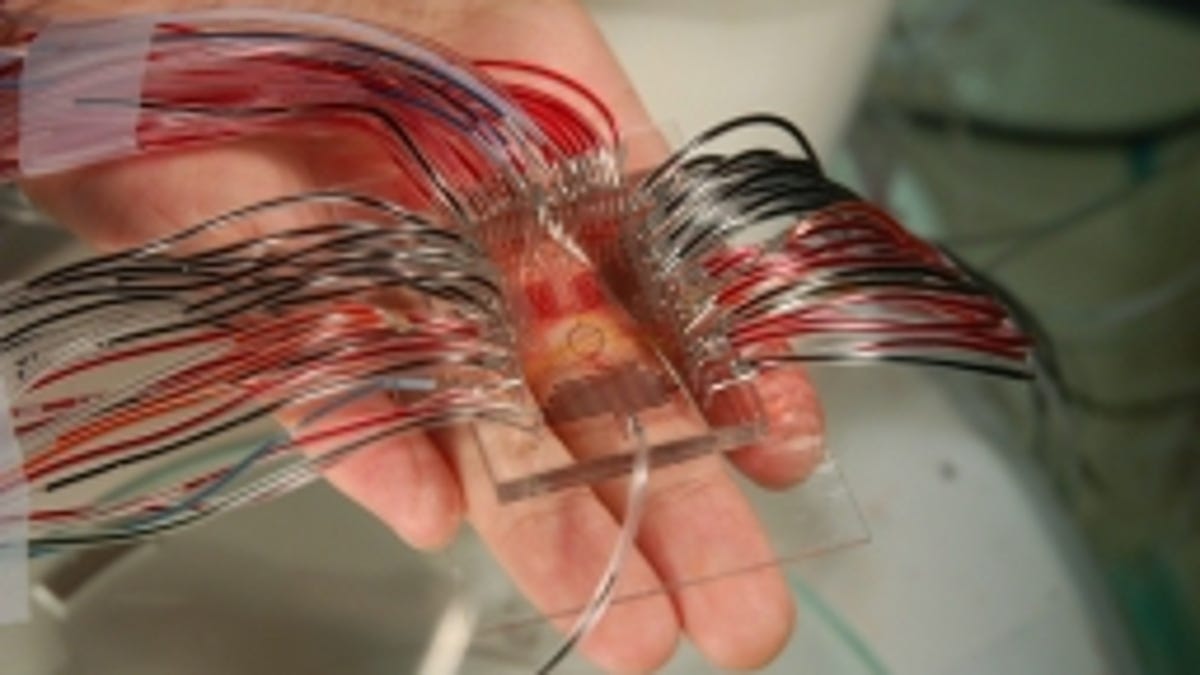Lab on a chip promises to speed experiments
Researchers have developed a chip that can be used to perform more than 1,000 experiments simultaneously.

Microchip technology can now enable chemists to perform more than 1,000 experiments at once, according to researchers from the University of California at Los Angeles.
A team of scientists from the university and other organizations have developed a chip based on microfluidics--the channeling of minute amounts of liquids and chemicals. The chip is designed to be plugged into a computer so chemists can perform multiple chemical reactions on the chip automatically.
In a study, the UCLA scientists produced a chip capable of conducting 1,024 reactions simultaneously, which the scientists used to identify inhibitors to the enzyme bovine carbonic anhydrase.
A large number of reagents were automatically mixed and sampled on the chip, while the experiments were completed in "a few hours," according to a UCLA statement on Monday.
The reactions were performed using in situ click chemistry, a technique used to identify which molecules will bind to protein enzymes to produce an effect in a cell. The results of the experiments were then analyzed offline, using mass spectrometry. The researchers hope to automate this analysis in the future.
"The precious enzyme molecules required for a single in situ click reaction in a traditional lab now can be split into hundreds of duplicates for performing hundreds of reactions in parallel, thus revolutionizing the laboratory process, reducing reagent consumption and accelerating the process for identifying potential drug candidates," said researcher Hsian-Rong Tseng, an associate professor of molecular and medical pharmacology at UCLA.
Key research contributors included Yanju Wang, Wei-Yu Lin, and Kan Liu, who work in Tseng's lab. The researchers hope the process can be used to identify potential drug candidates to combat diseases such as cancer. Their research paper, entitled "An integrated microfluidic device for large-scale in situ click chemistry screening," will be published in the Lab on a Chip journal on August 21. The paper is already available online.
Tom Espiner of ZDNet UK reported from London.